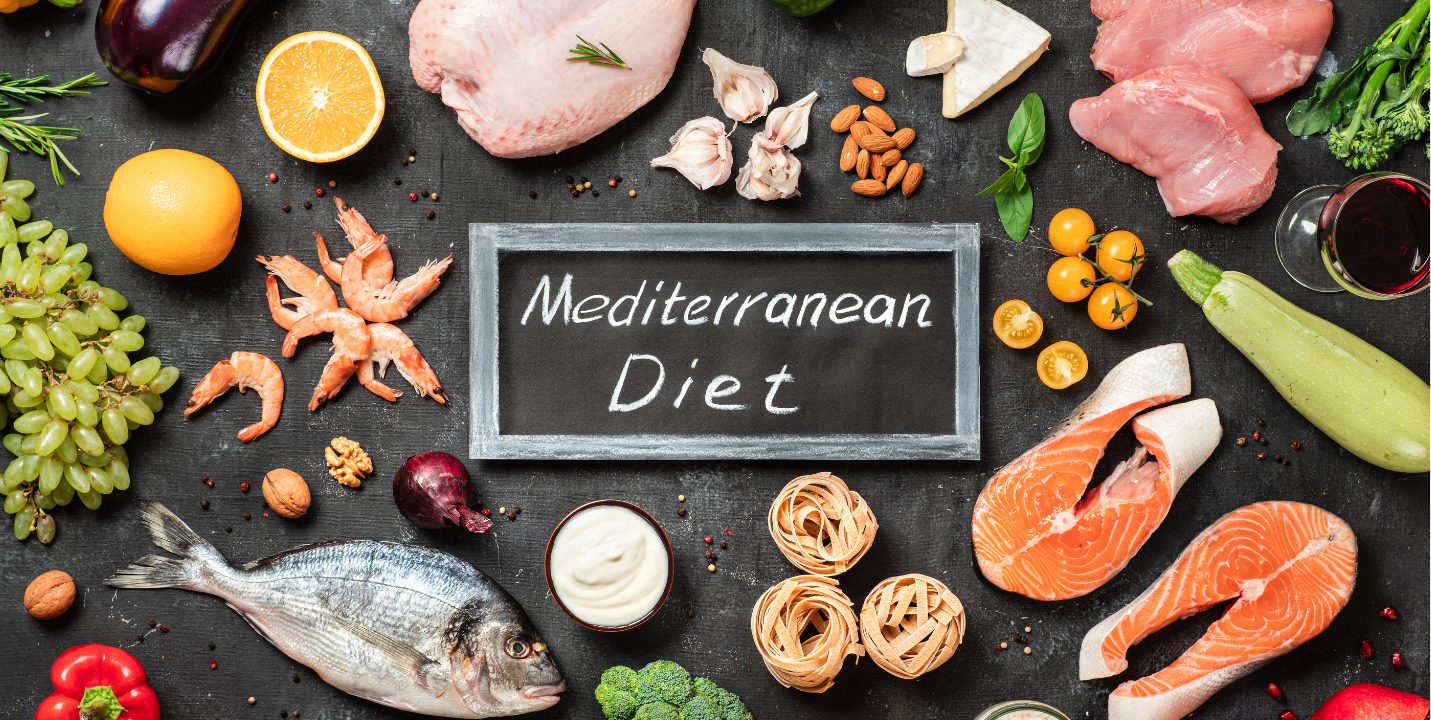In the world of healthy eating, the Mediterranean diet is stealing the spotlight, and for good reason! This plant-based way of eating is all about enjoying whole grains, olive oil, fruits, veggies, beans, nuts, and spices (1). While it includes a bit of meat, fish and seafood are the stars of the show. The magic lies in the high levels of good fats, a balanced mix of omega-3 and omega-6 fatty acids, and the abundance of fruits and veggies, all of which are known for their anti-inflammatory effects (1,2-4).
Studies have shown that sticking to a Mediterranean diet can bring down inflammation in the body. For instance, a study in Italy with over 14,000 people found that those who followed the Mediterranean diet had lower platelet and leukocyte counts, which are markers of inflammation (4). However, when it comes to musculoskeletal pain (that’s pain in your muscles and joints), there’s still more to uncover. Only two studies, one by Sköldstam and another by McKellar, have dived into this specific topic.
Sköldstam’s study looked at people with rheumatoid arthritis (RA) in Sweden. They tried a Mediterranean diet for 12 weeks, and the results were promising. The group on the Mediterranean diet reported a significant decrease in pain and joint swelling compared to the control group (5).
McKellar took it a step further, especially for women with RA. They had fun cooking Mediterranean dishes for 6 weeks, and the results were exciting. Even though they didn’t follow the daily recommended portions of fruits and veggies, the group showed improvement in pain scores at 6 months compared to the control group (6).
While these studies hint at the Mediterranean diet’s potential to help with musculoskeletal pain, more research is needed for a stronger recommendation. So, if you’re thinking about trying out this delicious and healthy way of eating, it might just be a flavorful step towards managing your musculoskeletal pain. Just remember, more studies will help us understand it better!
Note: It’s always a good idea to discuss with your doctor before making any big changes to your diet.
Reference:
- Galland L. Diet and inflammation. Nutr Clin Pract 2010; 25:634-640
- Chrysohoou C, Panagiotakos DB, Pitsavos C, Das UN, Stefanadis C. Adherence to the Mediterranean diet attenuates inflammation and coagulation process in healthy adults. J Am Coll Cardiol 2004; 44:152-158.
- Tsigalou C, Konstantinidis T, Paraschaki A, Stavropoulou E, Voidarou C, Bezirtzoglou E. Mediterranean diet as a tool to combat inflammation and chronic diseases. An overview. Biomedicines 2020; 8:201.
- Bonaccio M, Di Castelnuovo A, De Curtis A, et al. Adherence to the Mediterranean diet is associated with lower platelet and leukocyte counts: Results from the Moli-sani study. Blood 2014; 123:3037-3044.
- Sköldstam L, Hagfors L, Johansson G. An experimental study of a Mediterranean diet intervention for patients with rheumatoid arthritis. Ann Rheum Dis 2003; 62:208-214
- McKellar G, Morrison E, McEntegart A, et al. A pilot study of a Mediterraneantype diet intervention in female patients with rheumatoid arthritis living in areas of social deprivation in Glasgow. Ann Rheum Dis 2007; 66:1239-1243.

